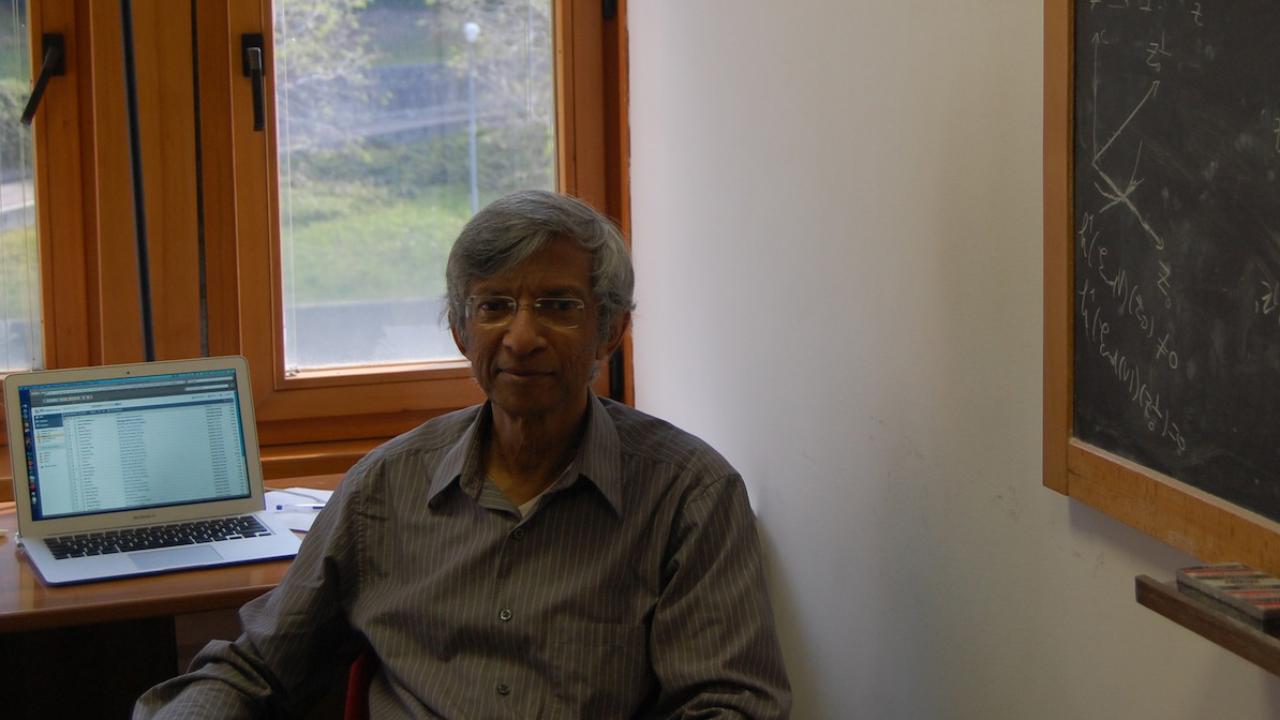
At first glance, Senarath de Alwis' biography reads like that of any successful theoretical physicist's. de Alwis, a regular ICTP visitor since the 1970s, obtained a PhD from the University of Cambridge (UK). He then went on to take post-doctoral positions at CERN and the University of Toronto, Canada, and Cambridge, along with visiting fellowships (Institute for Advanced Study, Princeton, USA) and professorships (first at the University of Sri Lanka and now at University of Colorado, Boulder).
But the career path for de Alwis, who is of Sri Lankan origin, has been a bit more complicated than what his biography would lead us to believe. The early 1970s, when de Alwis was working toward his PhD, was also a time of political unrest in Sri Lanka. "I was always interested in politics," says de Alwis, "and at that time in Cambridge, I had a close friend who was politically active, so I was aware of the deteriorating situation [in Sri Lanka]."
The brewing political turmoil led to a youth uprising in 1971, which de Alwis says was brutally suppressed. "I visited Sri Lanka soon after and perhaps what I saw there led to my active involvement in politics." After his stint at CERN, de Alwis returned to Sri Lanka in 1974 to take up a position as lecturer at the University of Sri Lanka.
"My focus shifted from research to teaching and political activism," says de Alwis. "Actually, the environment in Sri Lanka then made it difficult to carry out research; I could publish probably two papers during my ten years there." de Alwis was an ICTP associate at that time and he says that carrying out research would have been much more difficult had it not been for the ICTP association. "At one point, I considered quitting research altogether and focussing more on working with organisations that promoted ethnic justice," he adds.
The early 1980s saw a further escalation of ethnic conflicts in Sri Lanka. "Research-wise, there was little to do, and the situation for those who were politically active started becoming tense and unsafe," says de Alwis. "There was a period when I had to go underground, not sleep at my own home, and things like that." Violent riots broke out in Colombo, the Sri Lankan capital, in 1983. "In July of 1983, I remember driving to work and seeing violent clashes and dead bodies on the street," he recalls. With the political situation deteriorating, de Alwis went on sabbatical leave from the university to Imperial College London.
But, de Alwis began to focus on research once again and his papers on Quasi Riemannian Geometry (one of which was in collaboration with ICTP Deputy Director Seif Randjbar-Daemi) caught the attention of Nobel Laureate Steven Weinberg. Weinberg offered de Alwis a research associateship at the University of Texas, Austin, which he accepted. "In effect, I went from being a full professor back to being a postdoc," says de Alwis.
"You can say those papers restarted my research career," says de Alwis. He went on to take up a position at the University of Colorado, Boulder, where he is now full professor. de Alwis' main focus in the last few years has been supersymmetry, its breaking, and what string theory tells about the latter. Another goal of this research is to get a viable model of inflationary cosmology as a natural outcome of string theory. He is currently visiting ICTP and is collaborating with researchers here, including ICTP director Fernando Quevedo.
















